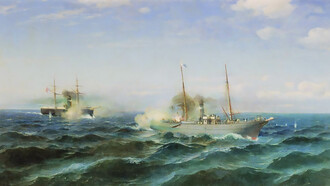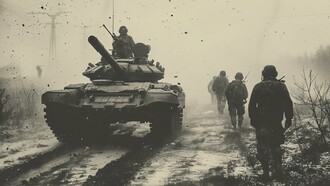The heated debate in Chilean society for the commemoration of the 50th anniversary of the coup d'état that broke democracy and opened the door to the worst crimes of our history has been a bath of reality before an unresolved past that demands an answer for the generations that live under the long shadow of the 17 years of military dictatorship. The ghost of guilt haunts Chile. Politicians, historians, philosophers, artists, sociologists, workers, academics, office workers, housewives, students, and an endless number of people pronounce themselves on whether the coup d'état was justified or not. The armed forces and the carabineros, heirs of the main actors who conducted the drama and governed for more than three lustrums, are rigorously silent. The role of the U.S. government and the direct intervention of the then president, Richard Nixon, has also been minimized, but the declassified documents provide access to information that leaves no room for doubt regarding the active role they played in the destruction of Chilean democracy. Perhaps their responsibility is greater or equal to that of the Chilean civilian sector.
The military pointed out that it was a pronouncement, not a coup d'état, to which they wanted to give legal explanations that did not exist. The reasons were political. Was President Salvador Allende and the Popular Unity coalition that accompanied him responsible for the end of democracy? No matter how hard they try to blame him, the arguments have no force and dissolve in the face of the overwhelming evidence of the respect for the law and the Constitution that he exercised until September 11, 1973, as well as the impeccable democratic life of the former president. The simplest evidence for any citizen is to review the press of the time to confirm the absolute freedom that existed under his government. No one has ever denied that in 1973 the country was going through a deep political and economic crisis, and the most evident proof of this is that the president was going to call a plebiscite on September 11, as he had communicated to some of his ministers, indicating that if he lost, he would leave the government.
So, what is missing for Chilean society to free itself from this past that haunts us? If we examine the experience of countries like Germany, for example, the Treaty of Versailles or the economic crisis provoked under the Weimar Republic are not to blame for Hitler's coup d'état in 1933, the establishment of a dictatorship, the creation of the Gestapo and the beginning of political and racial persecution, the creation of concentration camps and the beginning of the Second World War with the invasion of Poland. The Germans and their army took full responsibility for the horrors caused by the dictatorship.
There is no room to justify with explanations such as that during Hitler, the great highways were built, or the popular Volkswagen Beetle was developed for the German people. Memorial sites and museums about the horror in Germany do not talk about the context, about Weimar, or the unjust clauses imposed on Germany at the end of the Great War in 1918. The museum in Berlin called "Topography of Terror," located in the same place occupied by the Gestapo, describes how "they planned, organized and perpetuated the persecution and murder of millions of people" between 1933 and 1945, with names and photographs of those responsible.
In Chile, the coup d'état was the responsibility of the armed forces, who planned it, executed it and set the terror machine in motion. The DINA was the Chilean Gestapo and began to function immediately, its creation being formalized in November 1973. It is true that there were civilians who instigated the coup, but the monopoly of arms belonged to the military, as it does today. That is why the explicit veto that has been raised against the declaration of sites of memory wherever executions and tortures took place within army barracks is so embarrassing and damaging to the historical memory.
The uniformed forces refuse to assume the full responsibility and condemnation of their institutions in the destruction of democracy and a broad sector of the right-wing feels obliged to justify them, which is becoming increasingly difficult. Surely the armed forces and carabineros will remain silent in this commemoration of 50 years, but sooner rather than later, a generation of military will come to clean the honor and face the country will assume the responsibility of having broken democracy and the 17 years of horror that haunt us to this day.















